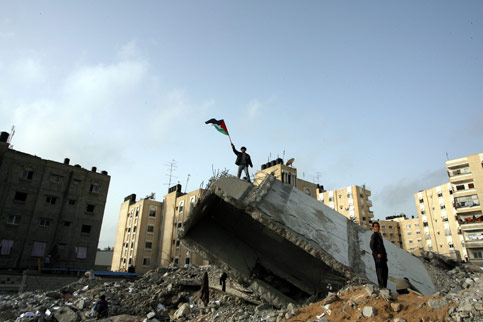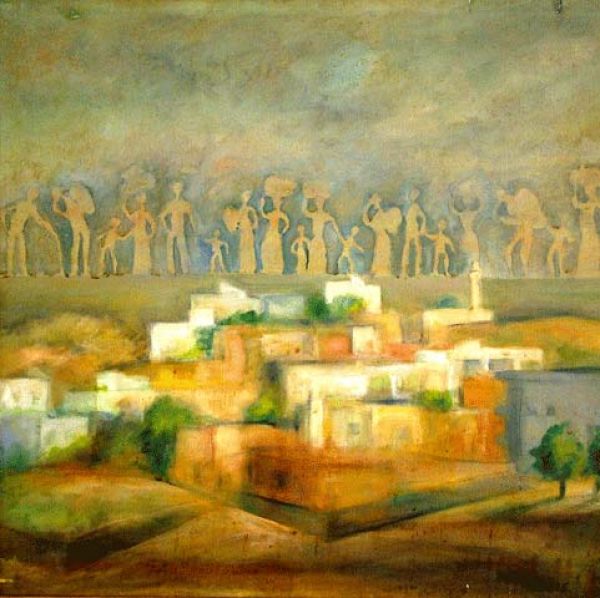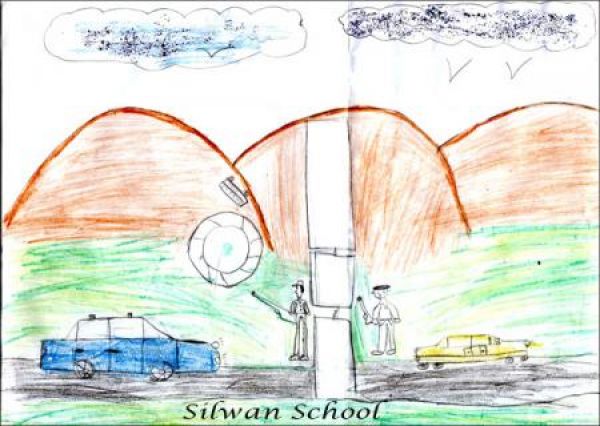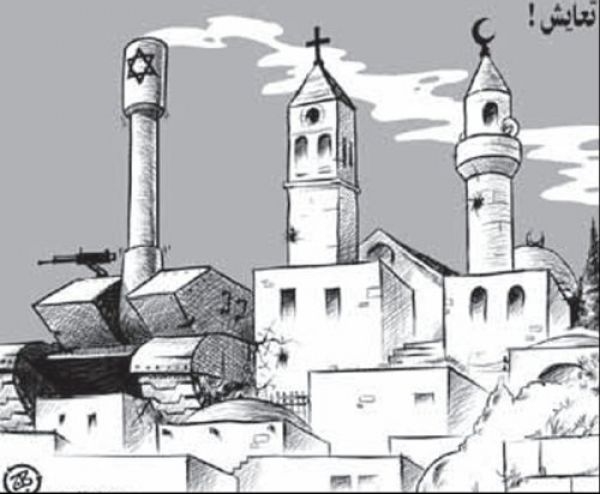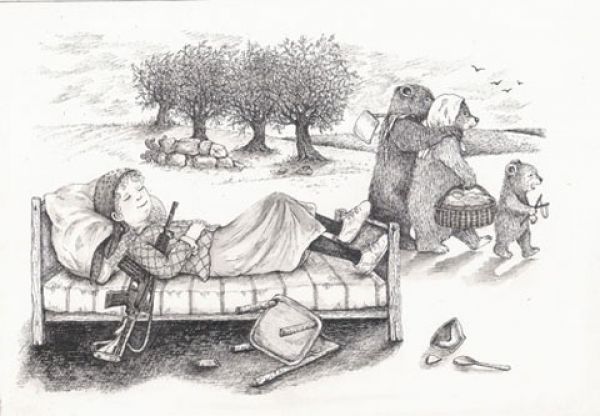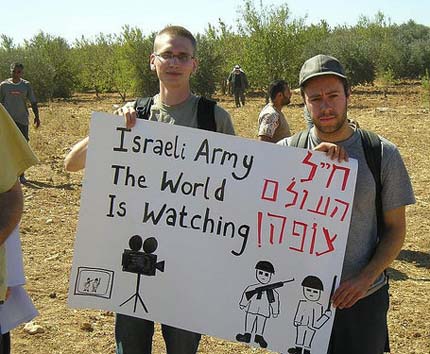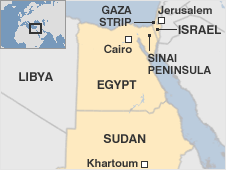EDITOR: The Al Ahram Nakba Archive is a useful research source for finding sources and quotes, but has not been recently updated. It will be available as a permanent link on this website, on the right, within the LINKS category.
The Nakba Archive
David Ben-Gurion, one of the father founders of Israel, described Zionist aims in 1948 thus: “A Christian state should be established [in Lebanon], with its southern border on the Litani river. We will make an alliance with it. When we smash the Arab Legion’s strength and bomb Amman, we will eliminate Transjordan too, and then Syria will fall. If Egypt still dares to fight on, we shall bomb Port Said, Alexandria and Cairo… And in this fashion, we will end the war and settle our forefathers’ account with Egypt, Assyria, and Aram” *.
50 years after the Arab defeat in the1948 war, which resulted in the establishment of Israel, many of Ben-Gurion’s stated aims can still be discerned in the language of Israeli and Zionist leaders. Some modifications have become apparent, in large part as a result of Arab resistance, but the biblical language in which Ben-Gurion chose to state his meaning starkly expresses the deeply-rooted nature of these violent fantasies of conquest and destruction.
Resistance, in this instance through a better comprehension of the history of the struggle, as well as the writing of our own version of it, becomes more necessary than ever. Israel cannot be allowed to write the history of the past fifty years unchallenged. It is in this conviction that Al-Ahram Weekly presents the first in a regular series of articles designed to document the history and nature of Arab-Israeli struggle, as well as that of Palestinian dispossession and exile.
Policy of provocation: Al Ahram Weekly
Israeli provocations, including annexing Islamic sites to an alleged heritage list, are creating a powder keg in the occupied territories, writes Khaled Amayreh in the West Bank
Palestinian officials have warned that recent Israeli provocations, including government-backed attempts by Jewish religious extremists to claim a foothold at the Al-Aqsa Mosque, are creating an incendiary situation in the occupied territories.
Visibly frustrated by Israel’s utter disregard for Palestinian objections to Israeli encroachment on Muslim holy places in Hebron, Bethlehem and East Jerusalem, Palestinian Authority (PA) officials have been appealing to the international community, especially Israel’s guardian-ally, the United States, to rein in the Israeli government.
“These provocations are killing the last hopes for peace. Israel is turning the occupied Palestinian territories into a powder keg. If these provocations continue, there can be no peace process, and the international community will have to bear the consequences,” said the erstwhile chief Palestinian negotiator Saeb Erekat.
Arguing that Israel is provoking the religious sensibilities of Palestinians, Erekat urged the Obama administration to stop Israel “before it is too late”.
Similarly, Ismail Haniyeh, the prime minister of the Gaza-based Hamas-run government in the Gaza Strip has called for a new Intifada, or uprising, against Israeli provocations.
Haniyeh said it was unacceptable that Israel could seize Islamic holy places in the West Bank while the Palestinians watched passively.
In recent days, Israel took a series of provocative measures Palestinians insist would alter the status quo in occupied Palestine, including adding two important Islamic sites to an alleged Jewish heritage list.
The two sites are the Ibrahimi Mosque in Hebron and the Bilal Ibn Rabah mosque in Bethlehem. Palestinian leaders, along with Arab and Muslim states, argue forcefully that the Israeli decisions nullify any serious talk of a peace process.
This view has been further enforced by the storming of the Al-Aqsa Mosque compound by Israeli occupation police forces on Sunday 28 February.
Palestinians said that the police attacked Muslim worshipers in order to provide protection for Talmudic Jewish fanatics seeking to gain “prayer rights” at one of Islam’s holiest shrines. Israeli spokespersons said the police had to intervene in order to protect “visitors” from stone-hurling Muslims.
As many as 200 crack policemen and para-military soldiers stormed the Al-Aqsa compound to evict dozens of Muslims who had barricaded themselves inside the Mosque, ostensibly to protect the site and repulse Jewish fanatics who were celebrating a Jewish holiday called “Purim”.
Showing no discretion and failing to take the sacredness of the place into consideration, Israeli forces shot tear-gas canisters throughout the Haram Al-Sharif esplanade (Noble Sanctuary), causing several injuries, mainly as a result of tear- gas inhalation.
Earlier, the Israeli occupation police sealed all gates leading to the Haram Al-Sharif, apparently in order to prevent Jerusalemites from converging on the holy place, as has happened on previous similar occasions.
The storming of the Al-Aqsa Mosque drew verbal reactions from Arab and Muslim capitals, that warned Israel that it was creating a tinder box.
Eventually, the Jordanian government seemed to have convinced the Israeli government to withdraw police forces from the Haram Al-Sharif and restore normality at the holy place.
Nonetheless, it is highly likely that tensions will continue to increase, especially in East Jerusalem, mainly due to further Israeli provocations, including plans to demolish dozens of Arab homes in the occupied city.
According to the Israeli media, the Jewish mayor of Jerusalem, Nir Barkat, has taken a final decision to demolish dozens of Arab homes, especially in the Silwan neighbourhood, in order to create flats for Jewish settlers.
The Silwan neighbourhood, labelled by Israeli sources “the second most incendiary place after the Al-Aqsa Mosque,” would witness the expulsion from their homes of hundreds of Palestinian families. Khalil Tufakji, an East Jerusalem geographer and cartographer, described the plan as “demographic ethnic cleansing”.
“They [the Israelis] want to obliterate the Arab identity of the city. They claim they want to develop the city, but in truth what they want is to destroy the Arab presence here. This is an ongoing demographic genocide.”
“The declared goal is not development. The real goal is depopulation of Arabs,” Tufakji said.
Israel has been planning to destroy hundreds, perhaps thousands, of Arab homes in Jerusalem that the occupation authority claims were built without a valid construction licence.
However, Palestinians and human-rights activists operating in the occupied territories argue that the licence issue is only an excuse since successive Israeli governments have routinely and systematically refused to grant non-Jews building licences, forcing frustrated Palestinians, languishing under a severe housing crises, to build unlicensed homes.
Arab sources in occupied Jerusalem have warned that the implementation of the Barkat plan would trigger a real Intifada in Jerusalem and the rest of the occupied territories.
“Of course, there will be violent reactions. What would you do if someone destroyed your home in order to build a flat for someone else? That would be an act of rape, and rape must be resisted,” said Jamal Moussa, a resident of the Silwan neighbourhood, the main focus of the Israeli plan.
Political and religious leaders of the estimated 350,000 Jerusalemite Palestinian citizens have reacted similarly, warning Israel that carrying out “this spate of ethnic cleansing would make the powder keg go off”.
Last week, Palestinian youths hurled stones at Israeli occupation soldiers in the southern West Bank town of Al-Khalil (Hebron). The soldiers fired rubber- coated bullets, stun grenades and shot tear-gas canisters.
Some eyewitnesses described the violence, which lasted for five days, as “a possible preview of things to come,” especially if the “present trend continues”.
Facing a difficult situation, stemming mainly from the refusal of the Obama administration to put pressure on Israel, PA Prime Minister Salam Fayyad decided to hold his weekly cabinet session in Hebron this week.
The meeting was meant to highlight Palestinian rejection of the latest Israeli decisions to take over Islamic holy places in Hebron and Bethlehem.
Fayyad and other PA officials have pointed out that they don’t want to see violence return to the streets of the West Bank.
However, it is abundantly clear that the possible return of violence to the streets of the West Bank depends more on what Israel does than on what the PA says.
Report: Hamas admits losing control in Gaza: Haaretz
Gaza in anarchy as extremist groups challenge Hamas regime, military chief tells Damascus leader.
In a letter to Hamas political chief Khaled Meshal, the group’s senior military commander has admitted losing control in Gaza, the Arabic-language newspaper As-Sharq Al-Awsat reported on Saturday.
According to the London-based newspaper, quoted by Army Radio, Ahmed Jabri sent an urgent dispatch to the Damascus-based Meshal, warning him that the security situation in Gaza is “deteriorating”.
“Recently a series of explosions has raised fears in Gaza,” Jabri wrote. Gaza had descended into “anarchy”, he said.
In the letter, Jabri reportedly admitted to a string of errors in governing the strip, where Islamist Hamas seized control in a bloody confrontation with its rival secular movement, Fatah, in the summer of 2007.
Hamas is convinced that extremist ‘jihadi’ Islamist movements are behind the bombings, which could mark the start of a push to oust the de facto government, the newspaper said.
Other Palestinian sources told As-Sharq Al-Awsat the attacks were the result of internal strife within Hamas, however.
On Thursday, Haaretz correspondents Amos Harel and Avi Issacharroff wrote in their MESS Report blog that extremist groups pose a growing threat to Hamas rule in Gaza.
They wrote: “Israel, which until now has viewed Hamas as its biggest enemy in Gaza, needs to take into account that within a couple of years Hamas will be the moderate force in Gaza protecting the calm while a monstrous and more dangerous threat is growing in the form of the ultra-radical groups.”
